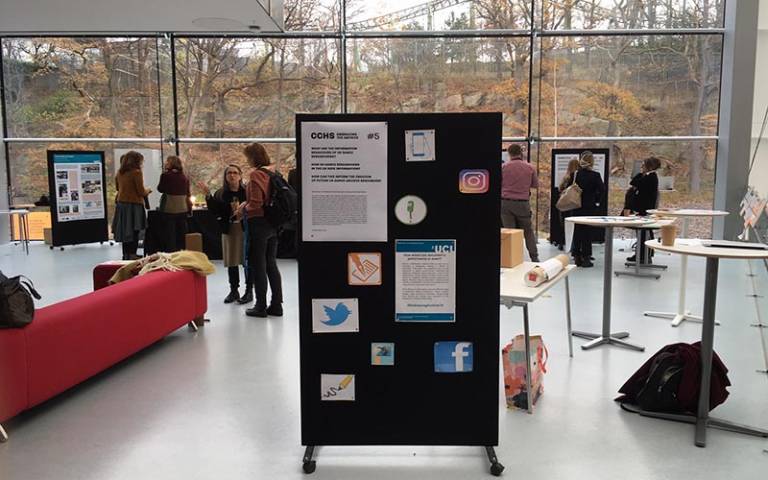Centre for Critical Heritage Studies symposium: Current discourses and challenges
11 November 2019
This two-day symposium in Gothenburg provided a platform for work and debate concerning the role of critical heritage in understanding the social, material and nonhuman world, particularly in the context of climate emergency.

Organised by the UCL-University of Gothenburg Centre for Critical Heritage Studies, Dr Clare Melhuish introduced the fourth session, hosted by Curating the City urban heritage research cluster, with an overview of the cluster’s co-edited volume (forthcoming), Co-curating the City: universities and urban heritage. Contributors to the book, some of whom participated in workshops hosted at UCL (2016) and at University of Gothenburg (2017) dedicated to the topic, will expand the field of critical heritage studies in the urban domain, by examining the role of universities both in the construction of urban heritage discourses, and in how those discourses influence urban planning decisions or become instrumentalised as mechanisms for urban regeneration.
The book proposes that universities engage in these processes in a number of ways: as producers of urban knowledge which is mobilised to intervene in planning processes; as producers of heritage practices which are implemented in development contexts in the urban realm; and as developers engaged in campus construction projects which both reference heritage discourses as a mechanism for promoting support and approval by planners and the public, and capitalise on heritage assets as a resource. Case study sites include UCL East, University of Gothenburg Campus Nackrosen, University of Lund (presented in the session by Mattias Karrholm), Roma Tre University, American University of Beirut, and the Federal University of São Paolo.
The introduction to the book was followed by a powerful keynote presentation by Keri Facer, Professor of Educational and Social Futures at the University of Bristol, and Uppsala University’s third visiting Zennstrom Professor of Climate Change Leadership.
Facer works on rethinking the relationship between formal educational institutions and wider society and is particularly concerned with the sorts of knowledge that may be needed to address contemporary environmental, economic, social and technological changes. Her presentation underlined the huge significance of the value systems we have constructed around our historical relationships with the world, conceived as ‘heritage’, in relation to the viability of our future existence on the planet, urgently highlighting the need for profound structural change in our relationships with the past in order to move forward into a different kind of sustainable future. ‘Learning to live with a lively planet’ points to the vital role and responsibility which universities have, as producers of specific kinds of knowledge and value systems, in making this shift and realising a fundamental change in our relationship with the world
 Close
Close

